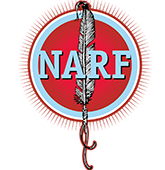Indian Child Welfare Act Under Attack Again as Conservative Group Submits Appeal to Supreme Court
The conservative Goldwater Institute is attacking the Indian Child Welfare Act again.The group has asked the U.S. Supreme Court to hear an ICWA case from California. The petition in Renteria v. Superior Court of California, Tulare County claims the 1978 law is based on “race” and should be deemed unconstitutional. Read the full article at the Indianz.com website.
